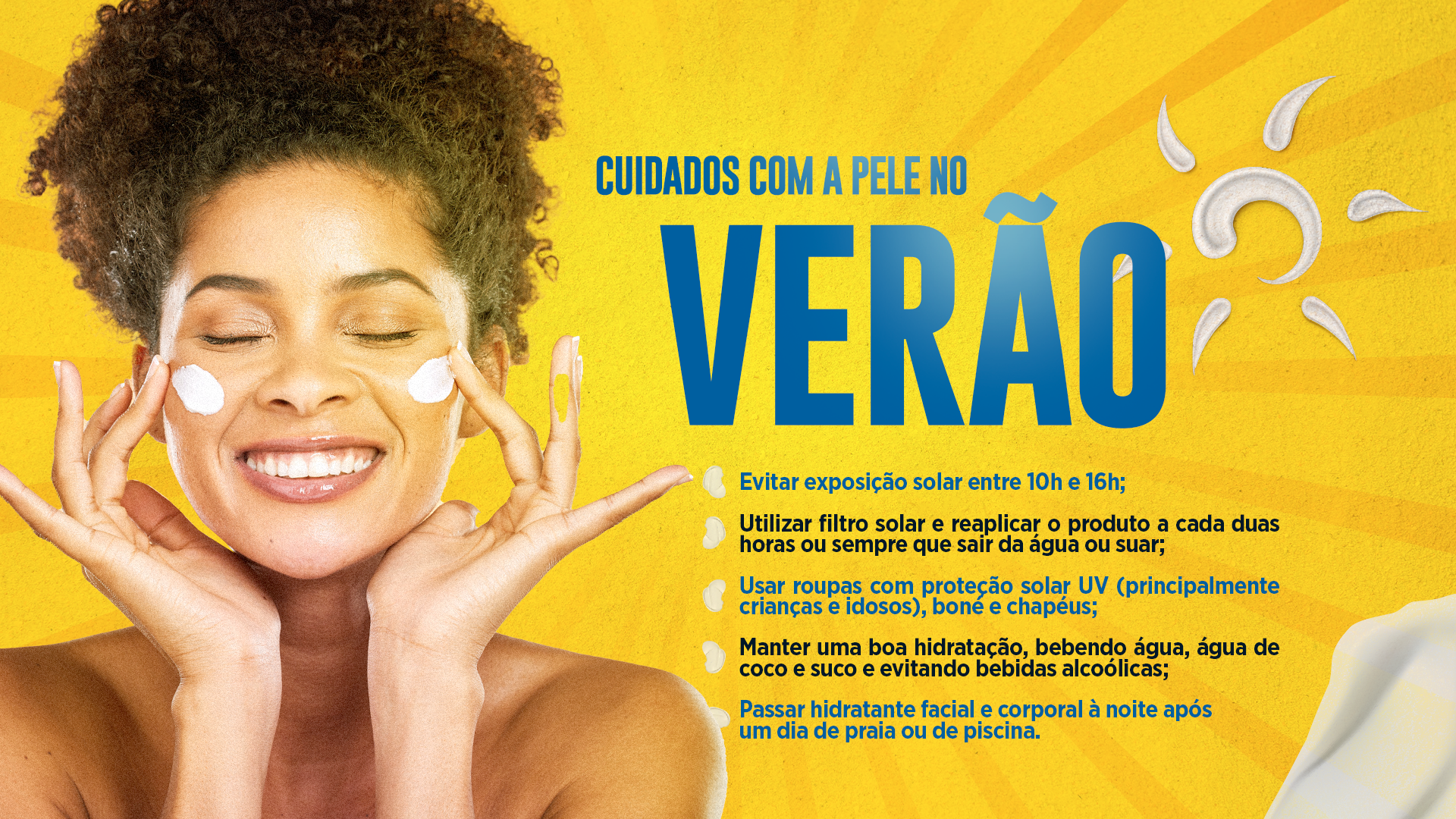Summer in the Southern Hemisphere officially continues until Wednesday (20), bringing with it higher temperatures and greater solar radiation. During the season, Brazilians enjoy longer days at the beaches, clubs and pools. However, intense exposure to the sun requires a series of precautions to avoid reactions, such as sunburn and sunstroke, and an increased risk factor for skin cancer.
“Skin cancer is without a doubt the greatest risk of exposure to sunlight during the summer holidays because the exposure is very intense and occurs over several days. Therefore, it is necessary to use all means to protect yourself from the sun during this period,” says Technical Director Fernanda Duran, collaborator in the Department Dermatology at the Ministry of Health (SES-DF).

Art: Brasilia Agency
Studies indicate that sunscreen alone cannot completely block the body's contact with sunlight. For this reason, it is still recommended to wear clothing with approved UV agents. The material protects up to 98% of rays from entering the skin, and is mainly recommended for children and the elderly. Additionally, hats and hats should be included for protection.
To avoid complications, it is recommended to be well hydrated, with plenty of water, coconut water and juice, and avoid consuming alcoholic beverages. Anyone who chooses to drink alcohol should double their water intake. “Hydration is very important because if a person does not drink fluids, they dehydrate their cells and end up getting heatstroke or burns,” explains Fernanda Duran. Diet also affects skin health, which is why it is best to avoid foods such as fried foods, sugar, and dairy products.
Dry skin due to excessive exposure to sunlight can lead to burns and heatstroke, causing symptoms such as nausea, vomiting, diarrhea, and even an irregular heartbeat. “You need to increase your water consumption and not expose yourself to the sun again,” he adds. If any of these signs are present, a person should seek medical help. Basic Health Unit (UBS) the closest.

